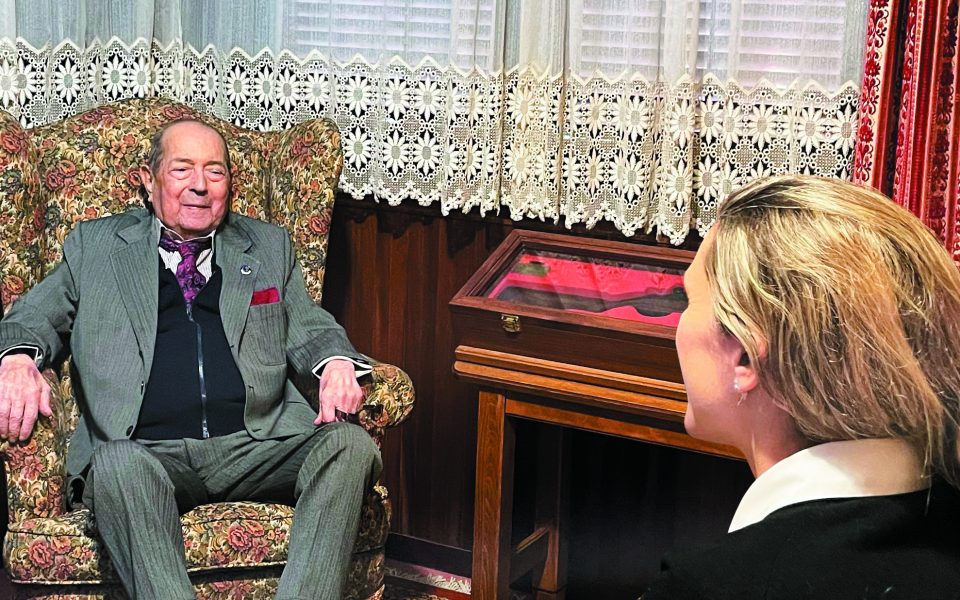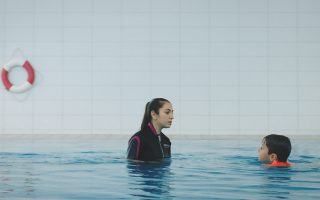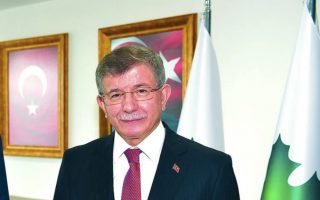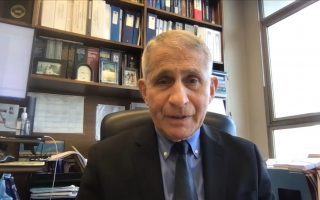For me, the patriot is the greatest man

“I started barefoot, I want to die barefoot.” These were the first words that 97-year-old Iakovos Tsounis said to me when I sat down in his office recently. And he will probably succeed in it, as during his lifetime he has donated 60 landing craft – a very large part of his fortune, over 23 million euros – to the Hellenic Armed Forces, while in the last two years alone his donations have come to €7 million.
We met in his office in Papagou district of Athens, right next to the apartment building where he lives. The two buildings are separated by the small Church of Agios Ioannis, whose construction he funded. In a room reminiscent of a museum – full of plaques, honorary diplomas, antique weapons and medals – one would think that Tsounis was a military man rather than a shipowner. I was treated to Greek coffee, grape must cookies and a bergamot spoon sweet, which – although I already had breakfast – I ate with great pleasure.
The 13th child of a forest ranger, he was 16 when Ioannis Metaxas said “no” to the demand that Greece surrender to Mussolini’s forces. Soon, the 12th Regiment of Patra moved into his home in the nearby village of Eglykada, and the teenager did everything in his power to convince the colonel, then living with his family, to enlist, despite his young age. And he succeeded. They soon reached Ioannina and Kalpaki. His father discovered that he had volunteered when he was already in the mountains. “You will either come back victorious or die there,” he wrote in his first letter. Indeed, Tsounis was considered to be among the “living dead” after two years on the Albanian front, as the cold, the hardship and the lice transformed him from a healthy 70-kilo young man into a 29 kg skeleton.
They gave him his last communion, and sent him back to Patra, where his parents did not believe that he would survive. Yet, one year later, he had fully recovered. He moved to Athens and from there was recruited a second time, and was sent to the mountains of Grammos and Vitsi in northwestern Greece during the Civil War. “We did not do Stalin the favor of turning Konitsa into a gangsters’ capital,” he told me, and despite his 97 years, his recounting was vivid and his voice intense. Tsounis’ experience in the army marked him forever and he will go down in history as the youngest veteran of the anti-Nazi and anti-fascist war.
In 1949, when he returned to Athens, he obtained a license as an assistant customs broker. With one table and some chairs borrowed from the owner of a café close to the First Customs Office of Piraeus, Tsounis charged 10 drachmas per customs clearance application.
At the same time, he started dismantling ships and selling their parts to the steel industry, while also supplying ships with provisions. In less than 10 years he managed not only to acquire significant capital, but also to invest it in stocks and real estate. In Tsounis’ mind, however, his future lay in shipping. And this thought was reinforced by Aristotle Onassis himself, whom he met by chance on the island of Skorpios while supplying provisions for the shipping magnate’s yacht, Christina. “Are you interested in the sea?” he had asked him. “I am a customs broker and I dismantle ships, what more could I want from the sea?” responded Tsounis. Onassis gave him a pat on the back, saying, “You will get into shipping, you bastard!”
And Onassis was right, as, in 1960, Tsounis acquired his first ship, a small commercial vessel of 1,000 tons for domestic routes. He found that the connections he had made with other Greek shipowners as a customs broker opened doors for him. He bought his first large ships with the help of shipowner Nikolas Papalios. Although it had been more than 10 years since he left Eglykada, his father’s advice remained indelible in his mind. His father, who was not rich, had a clear view of wealth and happiness. “Never forget where you come from, learn to be humble, and remember that the money you have is not yours. It is for those who do not have an aspirin or a glass of water. Help them discreetly and do not expect any credit for it if you want to be happy,” he told him.
Thus, it comes as no surprise that he started his charitable actions at the very beginning of his career. Three years after purchasing his first small ship and before acquiring any larger ones, he donated the significant amount of 200,000 dollars toward the foundation of the Lyreion Foundation. And despite the urging of the Lyra family to name it the Lyreion and Tsounion Foundation, he refused. “You explained to us that the money you will earn will be used to ease human suffering without public displays, discreetly and modestly, as Christ preached,” Captain Markos Lyras wrote to him in a letter of gratitude in July 1963.
The discreet donations continued. With some luck, the right choices and good relations with banks, in less than 10 years he had a fleet of 13 ships, including a 35,000-ton tanker. At the same time, he expanded into the real estate business in Los Angeles, London, Spain and elsewhere. Tsounis managed to build a fortune worth tens of millions of dollars in just a few years.
Lost investments
When Lehman Brothers collapsed in 2008, marking the climax of the global financial crisis, Tsounis had sold all his ships and invested his money in Citigroup. Within three days, he lost 90% of his fortune. He remembers how, during the Wall Street Crash of 1929, American businessmen committed suicide. “Instead of committing suicide, I thought of my father’s first piece of advice: ‘Do not forget where you come from,’ so I remained calm.” Many ask him why he won’t leave his fortune to his two children, Athena and Costas, instead of the Armed Forces. He says he believes he provided for them by sending them to the best universities, buying them homes and giving them some money. Besides his contribution to the Armed Forces, he has also made countless charitable donations to the needy, as well as to churches, clinics and hospitals.
On February 24, Iakovos Tsounis went to the Presidential Mansion in Athens to be awarded with the Grand Cross of the Order of Honor. “Mrs [Katerina] Sakellaropoulou wants to award me and she does not know me,” he told me, with some pride, during our meeting, two days before the event. “I never asked to be awarded a medal, nor did I ever ask for anything in return for my offers. I NEVER wanted to make a transaction,” he told me, emphasizing that I write the word in capitals.
Although he did not ask for honors and awards, he now has a list of hundreds of honorary distinctions. His office is full of plaques and awards, from the NATO Golden Lion award, the title of Grand Master of the Ecumenical Patriarchate, to the honorary rank of major general. As our conversation progressed, he showed me a painting from Kastellorizo: “I made them a radio station there and they gave me this painting,” he said of one of his countless contributions that have not even been recorded.
But what makes him especially proud is the museum that bears his name in the town of Aigio, with items of national and ecclesiastical significance, which was inaugurated in 2012. “We must go visit it!” he told me enthusiastically, having forgotten for a moment his age or his physical condition.
When I asked him why he believes so much in the value of the Hellenic Armed Forces, he said that, for him, it is “the soul of the nation.” “Money is not the be-all and end-all – our homeland is. Without a homeland, what does wealth, fame or joy matter? Everything loses its value. It is common knowledge,” he said with a smile, waiting for me to agree with him. How could I disagree? After all, as the president of the Republic said during the award ceremony, “this act of his [his decision last January to leave all his real estate property to the Armed Forces], which is the peak of his overall contribution, is deeply patriotic and exemplary for all Greeks.”
And, as he emphasized: “For me, the patriot is the greatest man. Not the person who has wealth and honorary distinctions, but the one who genuinely loves his home country.” Iakovos Tsounis has proved his love for his country, having gone above and beyond.





